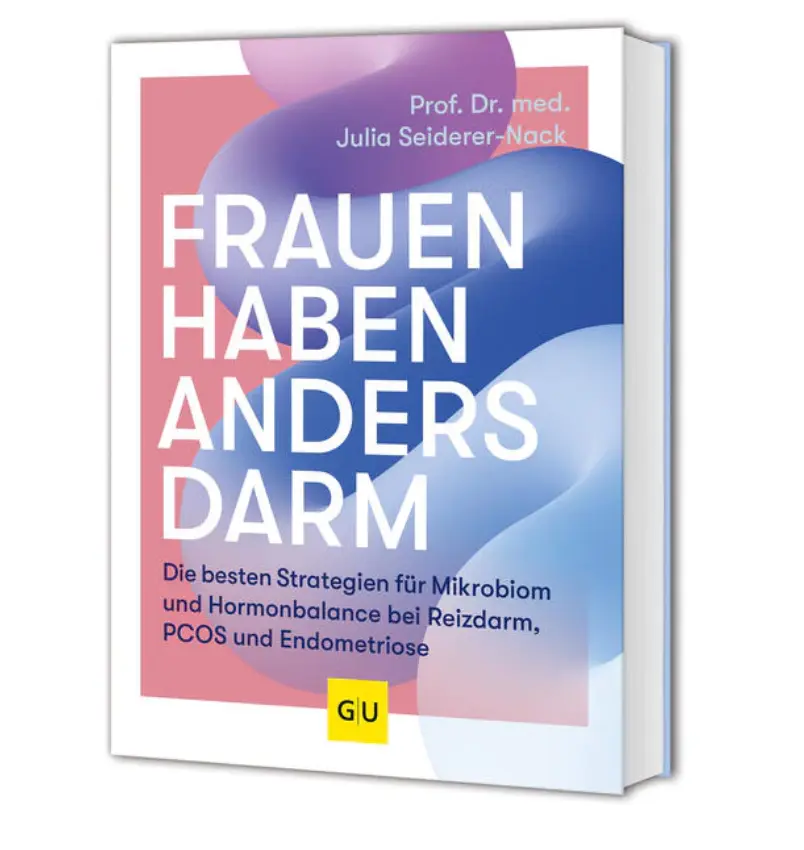Digestive problems? Women are twice as likely to be affected as men! This is because hormones, the gut-brain axis, and the microbiome are closely linked, so says Prof. Dr. med. Julia Seiderer-Nack. The specialist in internal medicine and sought-after expert on gut health explains in her new book "Women Have a Different Gut", among other things, the connection between the gut and diseases like endometriosis, IBS, or PCOS, why a microbiome-friendly diet is important - and which hacks can help alleviate symptoms.
Why are more than 70 percent of those affected by IBS female?
That's a good question, which we have asked far too little in medicine so far and to which we still have too little knowledge - gender health gap says hello. It is often argued that women go to the doctor more often, speak more openly about digestive complaints compared to men, and therefore are more often diagnosed with IBS.
Women are also attributed more stress or psychological burdens, which are often a quick explanation for female-typical pain conditions such as migraines, fibromyalgia, or IBS. What we have so far paid too little attention to, however, are measurable scientific differences between men and women in the gut, which could provide us with new perspectives for understanding and also treating IBS.
How do I actually recognize that I am suffering from IBS?
An irritable bowel is first and foremost a diagnosis of exclusion - so if I have suffered from constipation, abdominal pain, diarrhea or bloating for a long period of time, laboratory values, stool samples, and a gastroscopy and colonoscopy must be used to rule out other conditions such as an infection, celiac disease or chronic inflammatory bowel disease behind these symptoms. If the bowel is organically healthy in these examinations and the patient still has these symptoms, such an irritable bowel is likely.
What are the differences between male and female intestines?
Women's intestines are not only squeezed together by the uterus and slightly longer, but often also more relaxed: the food pulp is moved through the intestinal loops more slowly, which is why we are more prone to constipation. We also have a different intestinal microbiome, i.e. a different composition of bacterial species in the intestine, and show differences in the strength of our immune defenses, e.g., after infections or in autoimmune diseases.


















